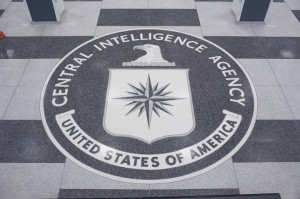 Last week, McClatchy’s Marisa Taylor reported on two cases showing the new appeals process for whistleblower retaliation claims ordered by President Obama is now operational; in the cases of Army whistleblower Michael Helms and CIA whistleblower John Reidy, the Intelligence Community Inspector General, Charles McCullough, has bounced the appeals back to the agencies in question for re-review.
Last week, McClatchy’s Marisa Taylor reported on two cases showing the new appeals process for whistleblower retaliation claims ordered by President Obama is now operational; in the cases of Army whistleblower Michael Helms and CIA whistleblower John Reidy, the Intelligence Community Inspector General, Charles McCullough, has bounced the appeals back to the agencies in question for re-review.
That McCullough has chosen to bounce these two appeals back to the agencies is notable enough, because his commitment to whistleblower issues has never been apparent. Instead, McCullough has spent his time as IG conducting leak investigations. And last year, a complaint email sent to Daniel Meyer, who oversees whistleblower issues for the intelligence community, somehow got shared with the subject of the complaint. So McCullough’s record on these issues is less than stellar.
But McCullough’s move is particularly interesting when you consider the details of the appeal of the second complainant, John Reidy.
Reidy was not a CIA employee — his complaint spans the time from 2005 to he 2011, during which he was a subcontractor to SAIC and then, after he lost his contract with them, with Mantech, although another CIA contractor, Raytheon, got involved in alleged retaliatory actions leading to his firing from Mantech in 2011. In addition, Reidy’s whistleblowing appears to have led to an adjudication flag that has held up his security clearance renewal, which prevents him from getting any more contracts going forward.
That means Reidy is in a similar position as Edward Snowden was: attempting to address problems in intelligence programs, but being exposed to retaliation in a way agency employees weren’t. He suggests he could be in a worse position than Snowden, because “Individual contractors and small companies do not have a proper avenue of redress against government and large company misconduct,” in large part because prime contractors get to set the rules for the little guys. Plus, CIA’s Publication Review Board shut down the one area where — according to his own reading (which I’m sure CIA disputes) — he should have an advantage over agency employees, the ability to publish embarrassing things that aren’t classified.
Thus, Reidy seems to be a classic example of a glaring weakness in already-pathetic intelligence community whistleblower protection: as a subcontractor, he has no protection from retaliation, and a very limited ability to officially report his complaints.
That’s troubling because his heavily redacted appeal at least appears to suggest his complaint was very serious and should have been a timely way to limit the compromise of CIA assets and officers.
Reidy describes playing three roles in 2005: facilitating the dissemination of intelligence reporting to the Intelligence Community, identifying Human Intelligence (HUMINT) targets of interest for exploitation, and (because of resource shortages) handling the daily administrative functions of running a human asset. In the second of those three roles, he was “assigned the telecommunications and information operations account” (which is not surprising, because that’s the kind of service SAIC provides to the intelligence community). In other words, he seems to have worked at the intersection of human assets and electronic reporting on those assets.
Whatever role he played, he described what by 2010 had become a “catastrophic intelligence failure[]” in which “upwards of 70% of our operations had been compromised.” The problem appears to have arisen because “the US communications infrastructure was under siege,” which sounds like CIA may have gotten hacked. At least by 2007, he had warned that several of the CIA’s operations had been compromised, with some sources stopping all communications suddenly and others providing reports that were clearly false, or “atmospherics” submitted as solid reporting to fluff reporting numbers. By 2011 the government had appointed a Task Force to deal with the problem he had identified years earlier, though some on that Task Force didn’t even know how long the problem had existed or that Reidy had tried to alert the CIA and Congress to the problem.
All that seems to point to the possibility that tech contractors had set up a reporting system that had been compromised by adversaries, a guess that is reinforced by his stated desire to bring a “qui tam lawsuit brought against CIA contractors for providing products whose maintenance and design are inherently flawed and yet they are still charging the government for the products.” In his complaint, he describes Raytheon employees being reassigned, suggesting that contracting giant may be one of the culprits, but all three named contractors (SAIC, Raytheon, and Mantech) have had their lapses; remember that SAIC was the lead contractor that Thomas Drake and friends exposed.
So why is McCullough making this case one of the first to receive an appeal (though it’s unclear what kind of review it will get from the same agency that has been undermining any review for years)?
It may be that McCullough recognizes the need to extend whistleblowing protections to contractors like Reidy, and if so, great.
But Reidy expresses his own skepticism, in part because of the earlier incident (reported by McClatchy as well) of CIA monitoring his communications to IC IG. “Due to the reported time frame in which surveillance of IC IG communications occurred, I believe my correspondence to the IC IG was monitored.”
Whether McCullough means to address a key weakness in whistleblower protections or not, it sure seems like some outside entity ought to conduct a close review of this case.


